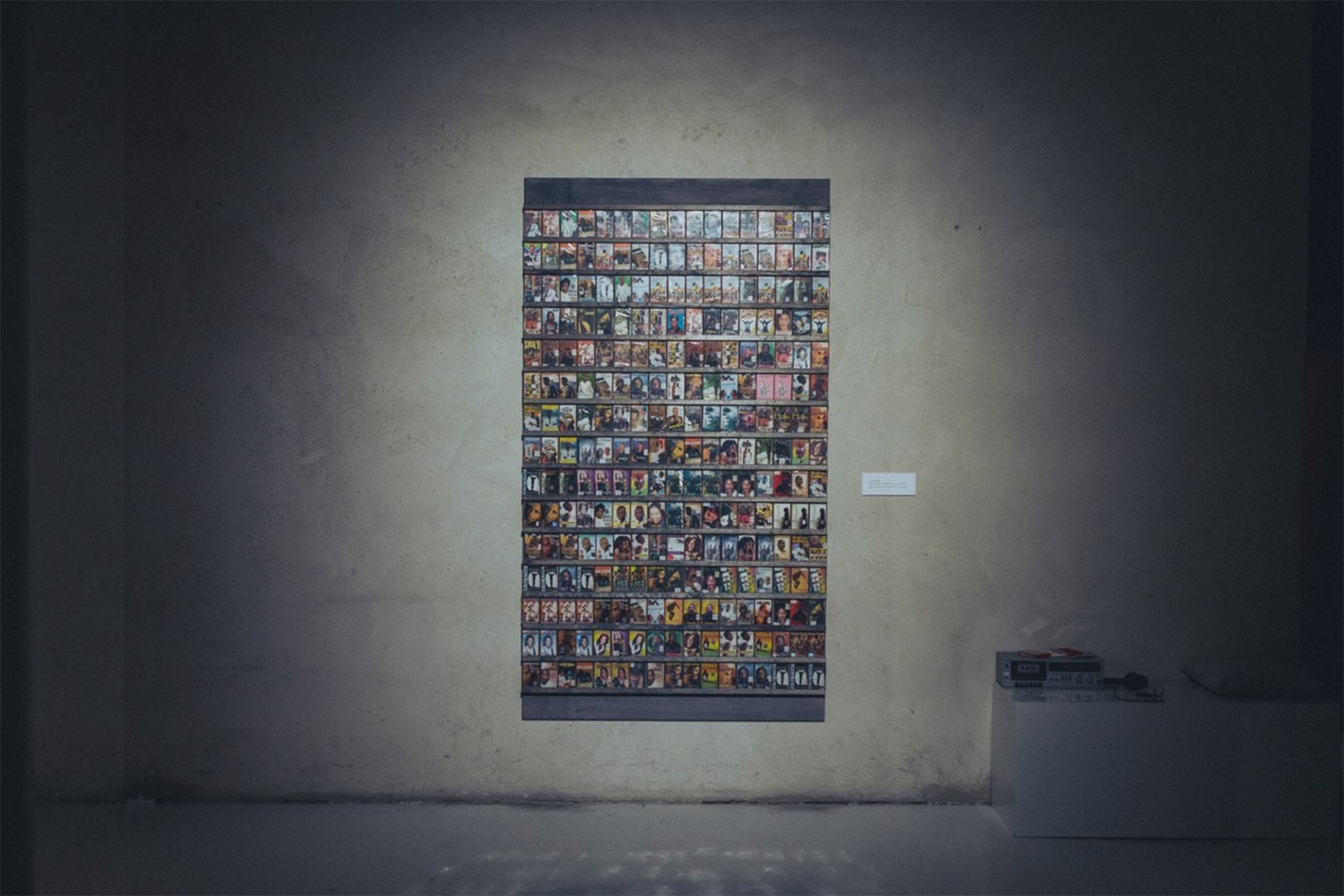Theresa Traore Dahlberg is a visual artist and filmmaker who formulates and mediates engaging complex narratives through sculpture, photography, and film. Her films narrate stories in the expanded field of documentary including themes such as representation of the other, by questioning how individuals, events and places are perceived, interpreted and understood. The artist finds her working material in everyday life, encounters with people from different places play an important role. Traore Dahlberg’s sculptural works often take a point of departure in the material itself, as a physical material and as a container of histories, ideas, and notions. The artist pays attention to production, working conditions, workers’ identities and fates of life, creating art that reflects the complexity of class, women’s roles, and post-colonialism. Traore Dahlberg draws from her own experiences of being anchored in two political and social cultures, Sweden and Burkina Faso, and from the implication of living in a contemporary European context.
Traore Dahlberg (b.1983, Värnamo Sweden) studied 16mm experimental film at the New School, in New York and at the Stockholm Academy of Dramatic Arts. Later she studied Visual Art at the Royal Institute of Art in Stockholm. Traore Dahlberg has exhibited internationally and in Sweden, in such venues as Zeller van Almsick, Vienna, Austria (2018) and Uppsala konstmuseum, Sweden (2018) and most recently she received Beckers Art Award 2019, which entails two large solo-exhibitions, at Färgfabriken Stockholm and Höganäs Museum, Höganäs, Sweden. In 2019 she also exhibited at Musée National du Burkina Faso. She has been awarded the Tempo Documentary Short Award for her film The Ambassador’s wife (2018) which was also shown at the Toronto Film festival, Tiff, Berlin, Clerement ISFF, Telluride and Artist Films International, Bonniers Konsthall, Whitechapel and more. Her first film Taxi Sister (2011) was about the everyday life of a Senegalese female taxi driver, and her film Ouaga Girls (2017) was her first feature-length documentary.
The exhibition showcases Cassettes, a partially interactive work, as well as two video works; Seydoni Promotion video, 1999, The vision. The prime years and Factory Back, 2019, From Storage to Musée National du Burkina Faso.
The production company Seydoni was founded in 1998 by Theresa Traore Dahlberg’s father, Richard Traore, a pioneer of the music industry in Burkina Faso. By creating a national platform for production and distribution, the predominant production patterns were broken when music had previously been recorded in other countries and then imported. Seydoni established an infrastructure for the entire production chain by starting business associations, arranging competitions and concerts, and training music producers, sound engineers, editors and industrial technicians.
In 1998, they also started the country’s first cassette factory, which during its first two years produced an average of 20,000 cassettes a day from 350 different artists with over 1.6 million albums sold. As technology progressed, the cassette tape soon became outdated and the production closed in 2005. Since then, the machines have been standing, unusable in a storehouse and the cassettes have been in boxes.
In Cassettes, Dahlberg has unpacked the tapes, unpacked what is today a very important part of the cultural history of Burkina Faso. A proof of a time when the music industry was booming, and of a vision to try to change set structures and create a platform for artistry and expression that has later come to play an important part of the society and self-identity. It points to how industrial changes and transitions can render something so highly valued useless overnight.
Wednesday – Sunday / 12:00 -18:00
Admission free.
Vernissage. 19.12.2019 / 18:00 – 20:00
Upcoming exhibitions:
20.02.2020 – 19.04.2020: Annika Larsson
